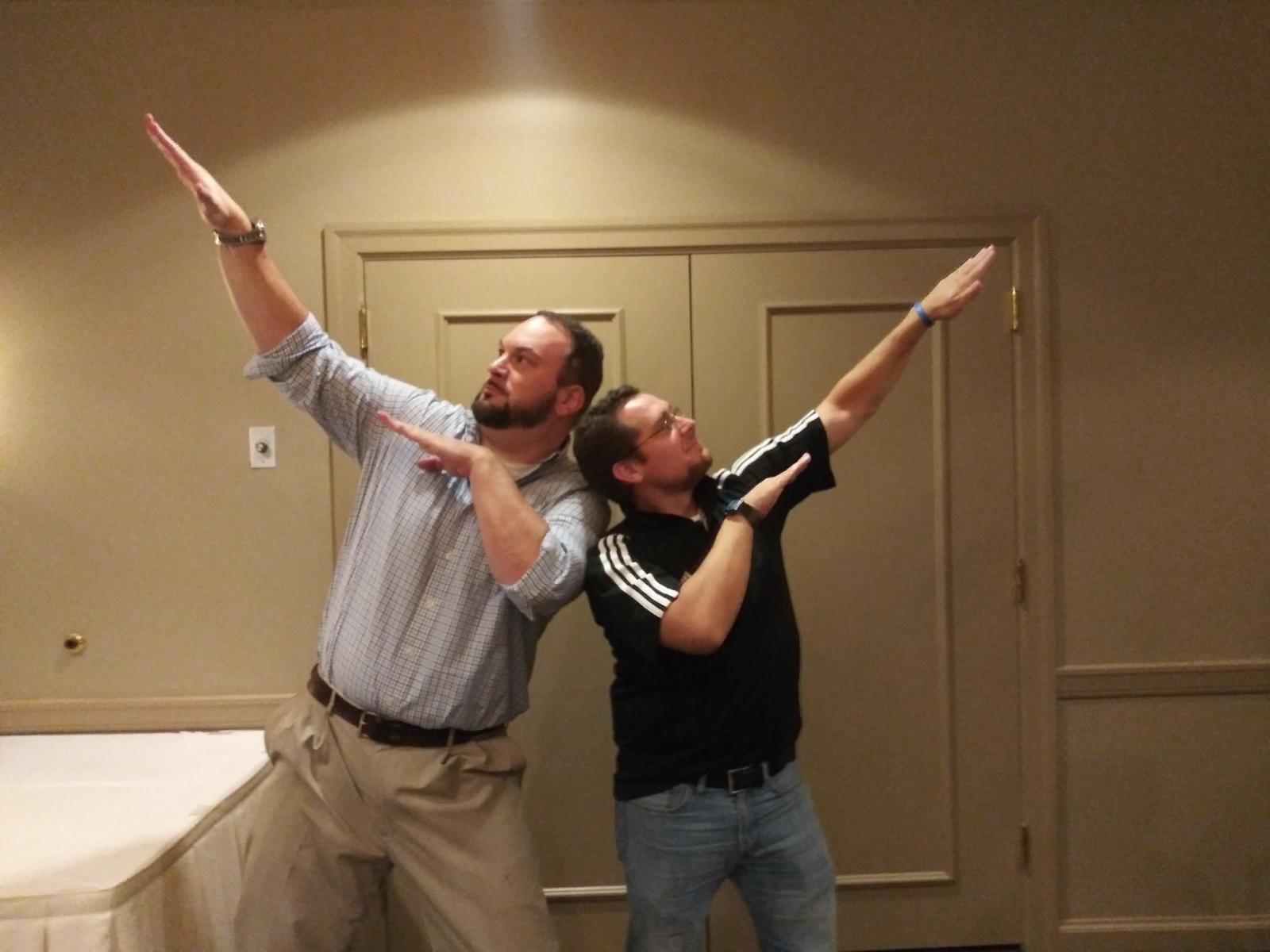RLL 54: How Gratitude Changes Our Hearts
My best friend, David, and me—just doing what we do at his wedding rehearsal dinner back in October.
I’ll get this out right up front: I am a short, short human being. I am 5’3” inches tall (that’s 160.02 cm for my metric-minded friends, according to Google), roughly the same height as Napoleon Bonaparte (at least according to British propaganda from the era) and much shorter than many notable celebrities that are considered ‘short.’ Also according to Google, the average American male is 5’9” tall…which puts the average American man as a full 6 inches taller than I am. Half a foot. Shorter than average.
I get hobbit jokes all the time from my students, elf jokes every Christmas season from the whole world, and short jokes from my best friend (who is 6’4”) and his family pretty much always.
As a result of my short stature, I’ve always felt frustrated at many aspects of life that average height men take for granted: getting things off of high shelves, washing my hands in public restrooms (which for me results in getting water from the counter top on my shirt right at belly-button level), etc. But here’s the thing: it could be worse.
When my daughters put heels on, they really are almost my height!
Over the past year, though, I’ve realized just how much I have to be thankful for, despite the fact that I’m roughly the size of a middle school student. And the more I focused on reasons to be thankful, the more thankful I’ve become. C.S. Lewis talks about a similar phenomenon in ‘Mere Christianity’ regarding how we treat others, and I believe the principle holds true for how we think of ourselves. Here’s what he wrote:
“When you are behaving as if you loved someone, you will presently come to love him. If you injure someone you dislike, you will find yourself disliking him more. If you do him a good turn, you will find yourself disliking him less…[W]henever we do good to another self, just because it is a self, made (like us) by God, and desiring its own happiness as we desire ours, we shall have learned to love it a little more or, at least, to dislike it less.”
I believe this same idea also applies to how we think about our situations in life: if we constantly focus on the negative, then the negatives only seem to grow. If, however, we choose to focus on the positives, then the negatives seem to fade into the background.
They don’t go away entirely (after all, I still need help getting things off of high shelves), but they’re not as big of a deal as they used to be. And they can even turn into moments of light-heartedness and fun, such as when my children get to laugh as I jump up to knock something off of a store shelf and then catch it before it hits the tiled floor.
I’m thankful that I’m short, because it means I get more opportunities to jump than most adults get on a regular day.
When my wife and I visited Cameron Indoor Stadium this summer, It was fun to see just how much smaller our feet are than those of former Duke basketball players.
I’m thankful that I’m short because not once in my life have I hit my head on a pull-up bar, a ceiling fan blade, or the top of a door frame (all of which my best friend has done).
I’m thankful that I’m short because the old “Jump, knock it off a shelf then catch it” trick made for a lot of laughs (and extra tips) when I was a bartender in college.
I’m thankful I’m short because when I played soccer in high school and college, I almost never got called for fouls because referees thought, “Surely that little guy didn’t actually knock that big dude over. He must have been diving.”
I’m thankful I’m short because it’s obviously how God intended me to be.
Action Step: This Thanksgiving week, in addition to just listing things we’re thankful for, I would challenge you to ask yourself how you might reframe your situation mentally (to learn more about ‘reframing,’ check out podcasts from both Bob Burg—https://burg.com/—and Jordan Harbinger—https://www.jordanharbinger.com/). In other words, think of something that normally bothers you or drags you down; then, examine how can you think differently about it so that it becomes an opportunity for gratitude.
(Bonus: For more info on how to do this, also go check out my friend Dr. William Findley over at BeliefHacker.com to learn how to #thinkbetter and #livebetter)






